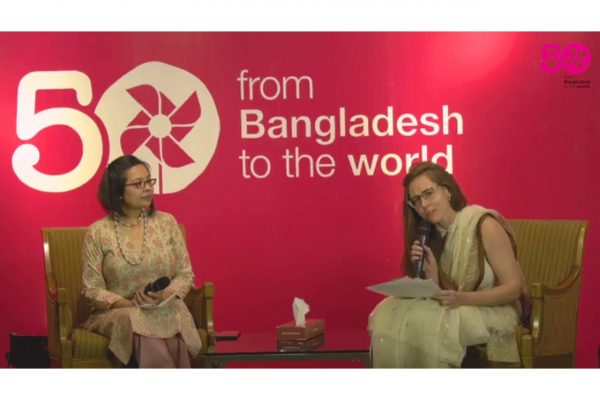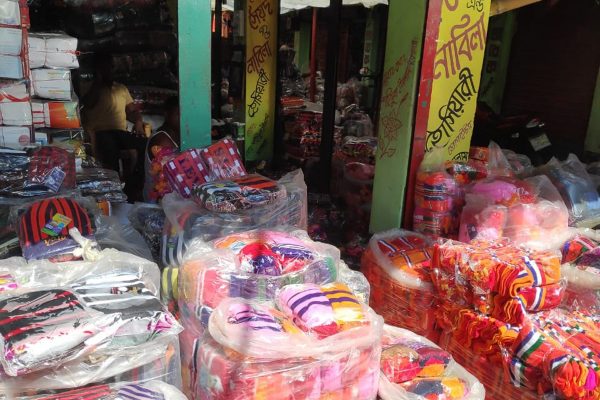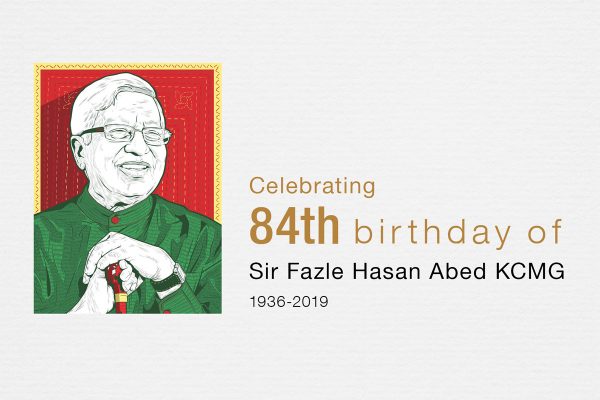Let’s make stone soup: Introducing BRAC’s Frugal Innovation Forum
Reading Time: 3 minutes
As a child, I was fed a healthy supply of fairy tales and fables. One of my favorites was that of “stone soup.” In the version I know, it’s about a community facing extremely harsh times during a war. Food was in short supply, and hope even shorter. A hungry traveller came to town and in the village center, put a big pot with water and a stone on a fire. Curious villagers came and asked what he was doing. “Making a tasty stone soup!” he would explain.
I would not give a fig for the simplicity this side of complexity, but I would give my
life for the simplicity on the other side of complexity. –Oliver Wendell Homes
As a child, I was fed a healthy supply of fairy tales and fables. One of my favorites was that of “stone soup.” In the version I know, it’s about a community facing extremely harsh times during a war. Food was in short supply, and hope even shorter. A hungry traveller came to town and in the village center, put a big pot with water and a stone on a fire. Curious villagers came and asked what he was doing. “Making a tasty stone soup!” he would explain.
No one knew exactly what it was, but it intrigued them. One woman asked if onions were an ingredient, since she had a few stashed in her pantry that she could contribute. Another had a few carrots that she could donate. Slowly but surely, the contributions of all the villagers were enough to make a delicious and rich stew to feed them all, catalyzed by a cook armed with little besides a stone and a vision.
Often when I visit BRAC’s programs here in Bangladesh, I think about the story of stone soup and its underlying principle. So much potential lies in the villages. The trick is figuring out how to set things in motion.
Setting things in motion, especially people and ideas, are the beginning of frugal innovation. It’s a concept that gets some hype these days, but discussions tend to overly focus on affordable technologies. Some, including Professor Jaideep Prabhu of Cambridge University and his co-authors Navi Radjou and Simone Ahuja, have promoted jugaad innovation, with a broader definition:
“Jugaad is a colloquial Hindi word that roughly translates as ‘an innovative fix; an improvised solution born from ingenuity and cleverness.’ Jugaad is, quite simply, a unique way of thinking and acting in response to challenges; it is the gutsy art of spotting opportunities in the most adverse circumstances and resourcefully improvising solutions using simple means. Jugaad is about doing more with less.”
On March 30-31, the Social Innovation Lab will host BRAC’s first Frugal Innovation Forum: Scaling Simple Solutions to welcome innovative leaders, policy makers, and academics to Dhaka for a weekend of collaborative learning, exchange of stories, and problem solving. Professor Jaideep Prabhu will be there, along with social entrepreneurs who have put the concept of jugaad in motion, such as Ms. Sheela Patel, founder and director of SPARC and its global counterpart, Slum Dwellers International.
We’ve picked three interrelated themes to focus on: developing human capital, mobilizing communities, and fostering civic engagement. Others participating include Mr. Arbind Singh, of Nidan, who helps informal workers organize to demand workers’ rights; Mr. Anir Chowdhury, who runs the Access to Information (A2I) Programme, linking citizens across Bangladesh to important government services through innovative uses of technology at the local level; Ms. Shandana Khan of the Rural Support Programmes Network, named “one of the 100 women who shake Pakistan” by Newsweek; and Ms. Swati Ramanathan from Janagraha, who is demonstrating how technology opens new frontiers for citizen action with online platforms like www.ipaidabribe.org and www.ichangemycity.org.
We’re looking forward to a great exchange of ideas and hopefully a starting point for new initiatives. Like the stone soup chef, we have faith in the recipe of sharing and collective exchange of ideas. As organizational behaviour guru Margaret Wheatley is quoted as saying, “We live in a complex world, we often don’t know what is going on, and we won’t be able to understand its complexity unless we spend more time not knowing. … Curiosity is what we need.”
If you are curious, working in development in South Asia, and are hungry for stone soup, please apply for an invitation. We’d love to include more voices in the conversation. Outcomes from the event will include written materials documenting the knowledge created, as well as the launch of a learning network on scaling up social innovation, supported by the Rockefeller Foundation.


![frugal_innovation_logo[1]](https://blog.brac.net/wp-content/uploads/2013/02/frugal_innovation_logo1.jpg)



